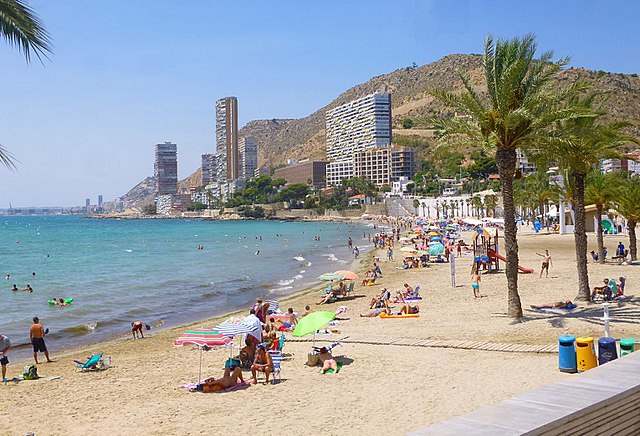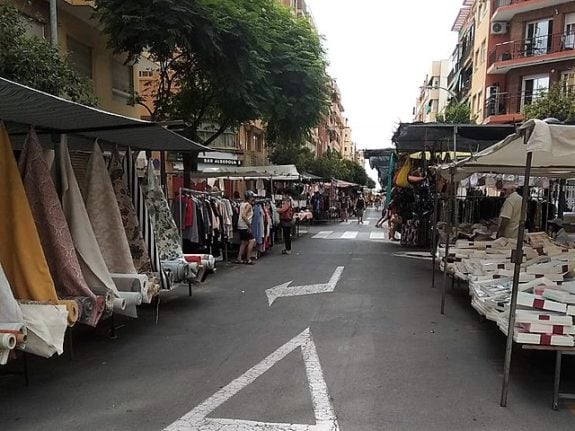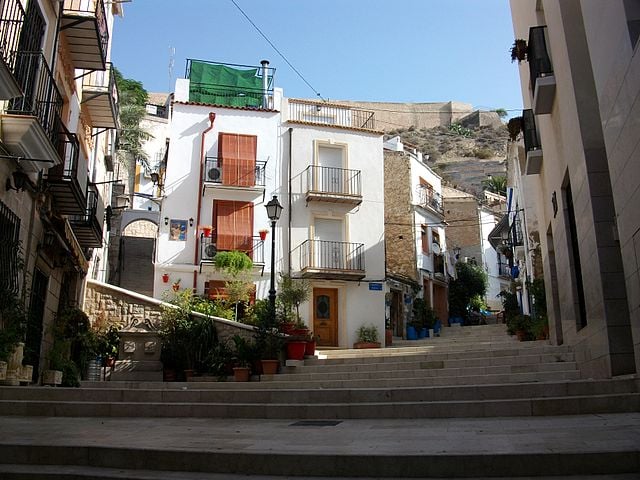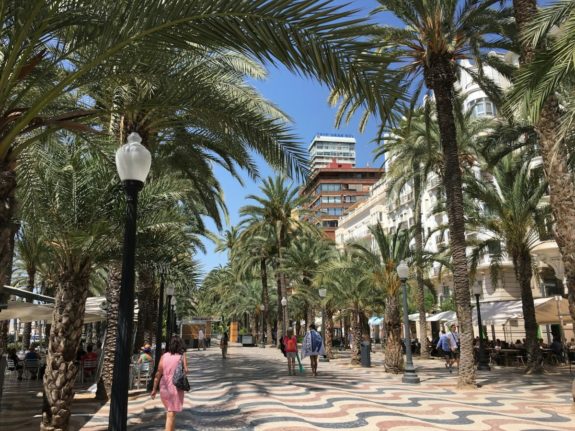Alicante province is home to 375,000 foreigners, many of them northern European retirees who choose to live in beachside locations along the Costa Blanca which tourists also flock to.
But the provincial capital, the city of Alicante, is sometimes overlooked by foreigners looking to enjoy the province’s great beaches, nightlife and weather, when in fact it offers all of this as well as history, culture and a more authentic experience of life in Spain.
In the Internations Expat Insider 2023 survey, Alicante (population 331,000) was voted the second best city in the world for foreigners, one of three Spanish cities on the podium. The city excelled in the Ease of Settling In category coming in second and also claimed the top spot in the Culture & Welcome category. In fact, it took top spots for feeling welcome, feeling at home and social lives.
So if you’re thinking of investing in a property in Spain or starting a new life in a Spanish city that also has a well-established foreign population, Alicante may be the perfect choice. Here are the neighbourhoods that offer the best quality of life in Alicante city.
READ ALSO:
- 11 Alicante life hacks that will make you feel like a local
- 10 hidden beaches and coves along Spain’s Costa Blanca
La Albufereta
On La Albufereta beach sits an Alicante neighbourhood which goes by the same name, as well as being one of the city’s safest and greenest barrios (neighbourhoods). With both the beach and city centre just minutes away, and coastal views from most areas of the neighbourhood, Albufereta is one of the nicer inner city areas in Alicante.
It’s very well connected with regular bus and tram services and also has several schools, sports centres and shopping areas to complement the coastal lifestyle on residents’ doorsteps.

Ensanche-Diputación
Ensanche-Diputación is another of Alicante’s sought-after waterfront neighbourhoods, encompassing the busy El Postiguet beach, the marina and the pleasant Explanada de España pedestrian walkway, with its endless bars and restaurants.
It’s central, it offers a wide variety of attractive property options and has plenty of services available close by, including Alicante’s main shopping areas and department stores.

Benalúa
A bit of a hidden gem in the heart of the city and largely unknown to non-alicantinos, Benalúa has everything you could want from an inner city neighbourhood and exists almost as its own village within the city.
Minutes walk from both the bus and train stations, a whole host of bars, restaurants, supermarkets, shops, plazas and green spaces are on your doorstep, with the the city centre and beach just a ten minute walk away.
The relaxed village feel and services and connections mean Benalúa is popular with families and pensioners.

El Barrio
Located under the picturesque Castillo de Santa Bárbara, you’ll find Alicante’s old town, El Barrio de Santa Cruz. Often referred to as just ‘El Barrio’ or Santa Creu, and it’s home to the bulk of Alicante’s cultural and touristic stops, museums and galleries, its busiest bars, and classical architecture.
El Barrio is the neighbourhood of choice if you want traditional Spanish charm and a lively social life.

San Juan
A short drive or tram ride (around 8km) out of Alicante city centre is San Juan, famous for its golden beach. The barrio has a distinct beach town feel, with the long stretch of golden sand forming San Juan’s hub.
Like many beach towns, San Juan is much busier in the summer as many alicantinos and madrileños take up their beach houses for the summer. This does, of course, have an effect on prices and makes San Juan one of Alicante’s posher and pricier neighbourhoods.

READ ALSO: The most picturesque day trips in Spain’s Alicante province



 Please whitelist us to continue reading.
Please whitelist us to continue reading.
Member comments